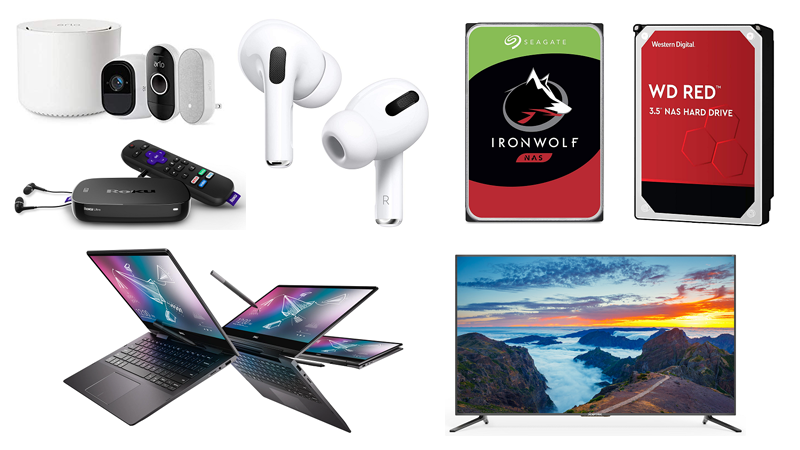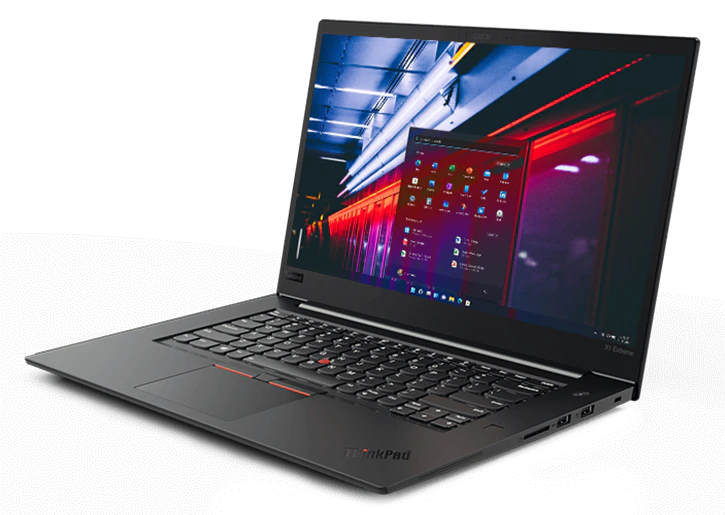
- We are creative, ambitious and ready for challenges!
- Biashara Street, Revlon Profesional Plaza, 2nd Floor, Suite 1
About Us
We are Kenya's best Information Technology Company. Providing the highest quality in hardware & Network solutions. About more than 10 years of experience and 1000+ of innovative achievements.
ConsultationContact Info
- Biashara Street, Revlon Profesional Plaza, 2nd Floor, Suite 1,
- (254) 0724 404935
- support@royaltech.co.ke
- Week Days: 09.00 to 18.00 Sunday: Closed
Lenovo ThinkPad X1 Carbon (7th Gen) review:
- home
- Lenovo ThinkPad X1 Carbon (7th Gen) review:
Lenovo ThinkPad X1 Carbon (7th Gen) review:
- 0 comments
- Admin

Nobody wants to carry a laptop to work with them. Because of this, manufacturers keep making laptops that emphasize maximizing productivity while minimizing size and weight. A prime example is the seventh-generation Lenovo ThinkPad X1 Carbon, a 14-inch business laptop that is both lighter and smaller than last year's model without compromising performance.
When commuting or traveling with the X1 Carbon, you wouldn't ever use the word "lug" as it weighs only 2.4 pounds (1.1 kg). Additionally, it is only 14.9mm thick (0.6 in. ), making it easy to slip in and out of your suitcase while flying in coach on the middle seat without bumping into your neighbors. Additionally, it is still tray-table size even though it has a larger display than many ultraportables. Even the X1 Carbon is available with a PrivacyGuard display from Lenovo, which helps to obscure what is visible on your screen when viewed from the sides.
Light, but still tough
For better or worse, business laptops still have a reputation for being black slabs of boring. While the X1 Carbon doesn't shout "look at me" like HP's Spectre x360, it's certainly stylish and durable, too. Lenovo says it meets 12 military-grade requirements and goes through more than 200 quality checks.
The keyboard is spill-resistant and is without a doubt one of the most comfortable keyboards you'll find on a laptop this thin and you likely won't have to adjust to using it. It has a two-level backlight as well. Tucked in between the G, H and B keys you'll find Lenovo's TrackPoint pointing stick, and the left, right and scroll mouse buttons below the space bar. Although many will likely end up using the laptop's reliable Windows Precision Touchpad, I find the TrackPoint comes in handy in cramped plane, train or bus seats.
Given that this is Lenovo's premier business ultraportable, prices presently start at just about KES 50000 and quickly increase from there. The $2,499 CNET review laptop includes nearly all the available features, including an ultra-HD display with HDR400 support and a brand-new carbon-fiber lid design. Basically, it has all the attraction (and value!) of a high-end ultraportable for consumers in addition to Lenovo's most recent privacy and security features for businesses, making it undoubtedly one of the best in its category.
The X1 Carbon is a traditional clamshell and doesn't have the dual 360-degree hinges and the active pen of its X1 Yoga linemate. The screen does open 180 degrees, which gives you plenty of positioning flexibility and makes it easier to share your display with others at the table.
Lenovo offers five display options on this model, three of which are 1,920x1,080-pixel resolution. There are also a WQHD (2,560x1,440 pixel) and the UHD display (3,820x2,160 pixel) I tested, although the latter doesn't seem to be an option when buying direct from Lenovo. The UHD display is nice to have, especially for entertainment, but you'll likely need to calibrate when you get it. Mine was a little pink out of the box.
Regardless of your choice, the webcam squeezed into the frame above it is fitted with a physical shutter that slides to block the camera. The laptops mics can also be cut for greater privacy. Lenovo also offers two newer privacy features on this model: PrivacyGuard and PrivacyAlert. The former makes it difficult for people to the sides of your display to see what you're looking at it from head on. The latter will actually pop up a notification on your screen if someone is shoulder surfing while you're working. PrivacyGuard is unfortunately only available on one of the four display options and PrivacyAlert requires an optional IR camera in the laptop.
A fingerprint reader comes standard and it stores and processes your print on its own system-on-a-chip (SoC) for better protection of your system and print from hacks or malware. Other security features include self-encrypting SSDs and Intel vPro processors, discrete TPM 2.0 and FIDO authentication.
The X1 Carbon has two Thunderbolt 3 USB-C ports, two USB 3.1 (gen 1) ports and a full-size HDMI 1.4 output. Sitting directly next to one of the USB-C ports is a connector for Ethernet using an included dongle, but also an optional side mechanical dock. There's a combo headphone/mic jack, too. Also, if you need to stay connected wherever you are, you can get LTE-A mobile access with the X1 Carbon.
For the longest battery life, skip UHD
Performance on my X1 Carbon was excellent, which isn't much of a surprise given its maxed-out configuration: 1.9GHz Intel Core i7-8665U vPro processor, 16GB of 2,133MHz RAM and a 1TB PCIe NVMe SSD. For day-to-day office chores like email and word processing, though, you'll be fine with the entry-level config running a 1.6GHz Intel Core i5-8265U. If your days usually have you handling more intensive tasks -- such as working in large databases or spreadsheets or creating multimedia presentations -- or you just want more headroom for the future, go ahead and get the i7.
Battery life, though, is a bit disappointing. Lenovo claims up to 18 hours, but that's not for the more powerful configuration I tested with the UHD-resolution display which ran for 6 hours, 21 minutes in our streaming video test. With power and screen brightness adjustments, you can get more work time out of it, but basically, if you want the best battery life, skip the UHD HDR display. If you aren't too concerned about the battery life, you can at least take comfort in the laptop's quick-charge capability that brings it up to 80 percent in only an hour -- perfect for recharging on those airport layovers -- or you can run the X1 Yoga off an external battery pack.
System configurations
| Lenovo ThinkPad X1 Carbon | Microsoft Windows 10 Pro (64-bit); 1.9GHz Intel Core i7-8665U; 16GB DDR4 SDRAM 2133MHz; 128MB (dedicated); Intel UHD Graphics 620; 1TB SSD |
|---|---|
| Lenovo ThinkPad X1 Yoga | Microsoft Windows 10 Pro (64-bit); 1.9GHz Intel Core i7-8665U; 16GB DDR4 SDRAM 2133MHz; 128MB (dedicated); Intel UHD Graphics 620; 1TB SSD |
| Dell XPS 13 (2019) | Microsoft Windows 10 Home (64-bit); 1.8GHz Intel Core i7-8565U; 16GB DDR4 SDRAM 2,133MHz; 128MB (dedicated) Intel HD Graphics 620; 512GB SSD |
| Microsoft Surface Laptop 2 | Microsoft Windows 10 Home (64-bit); 1.6GHz Intel Core i5-8250U; 8GB DDR4 SDRAM 1,866MHz; 128MB dedicated Intel UHD Graphics 620; 256GB |
| Apple MacBook Pro (13-inch, 2019) | Apple macOS Mojave 10.14.5; 1.4GHz Intel Core i5-8257; 8GB DDR3 SDRAM 2133MHz; 1536MB Intel Iris Graphics 645; 256GB SSD |

